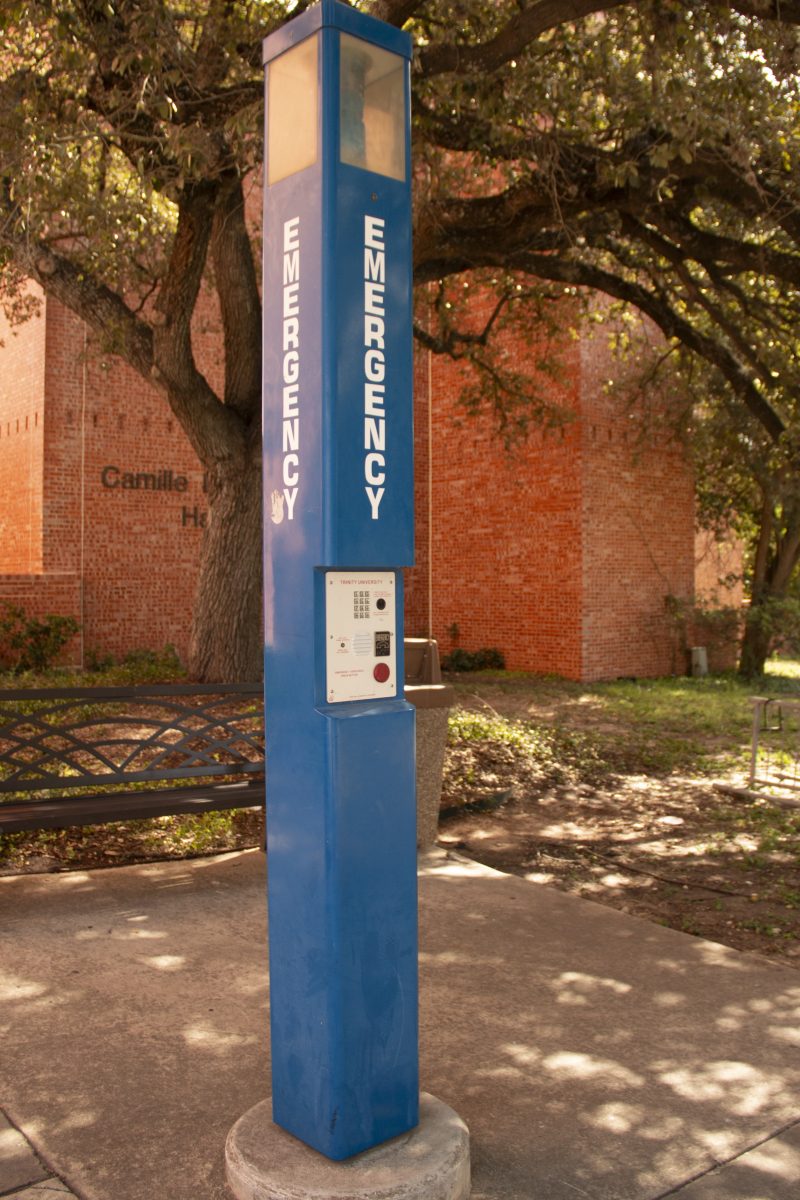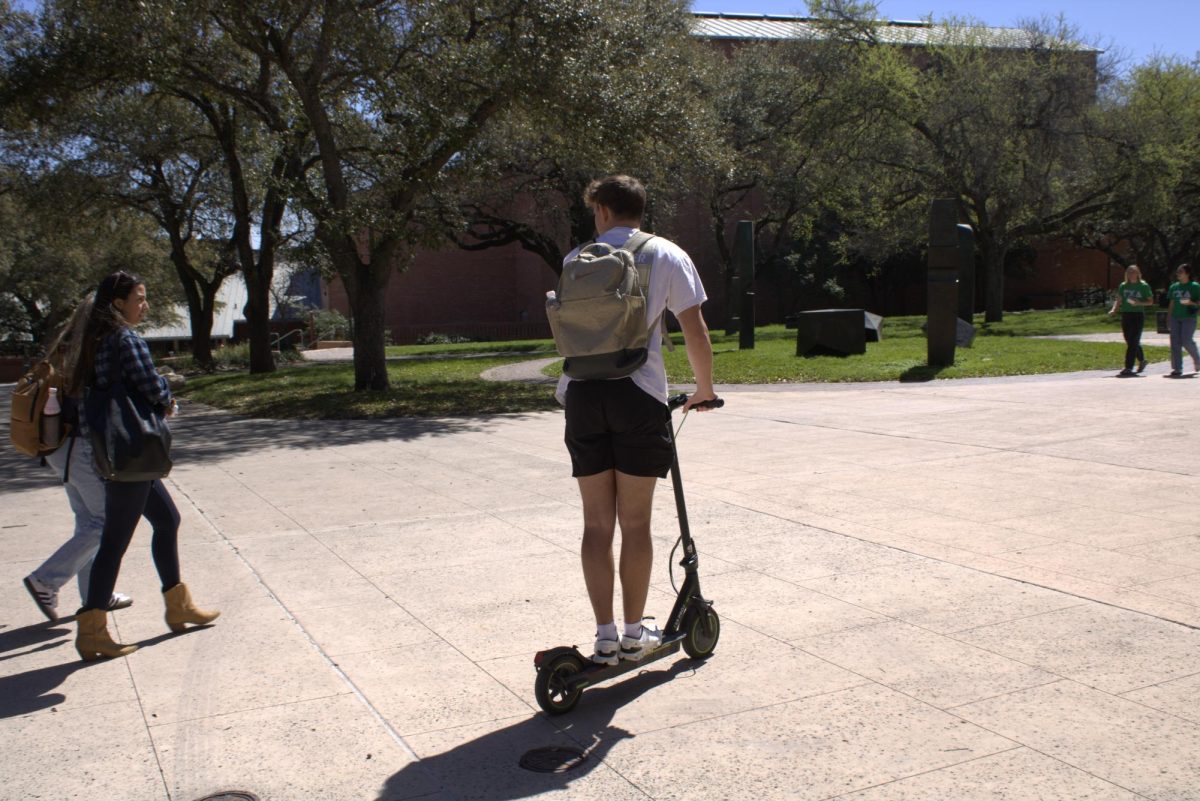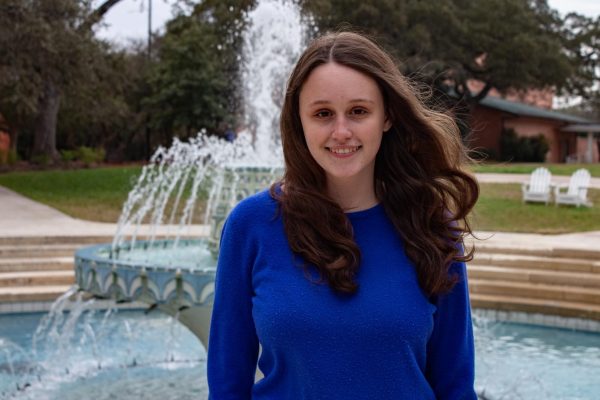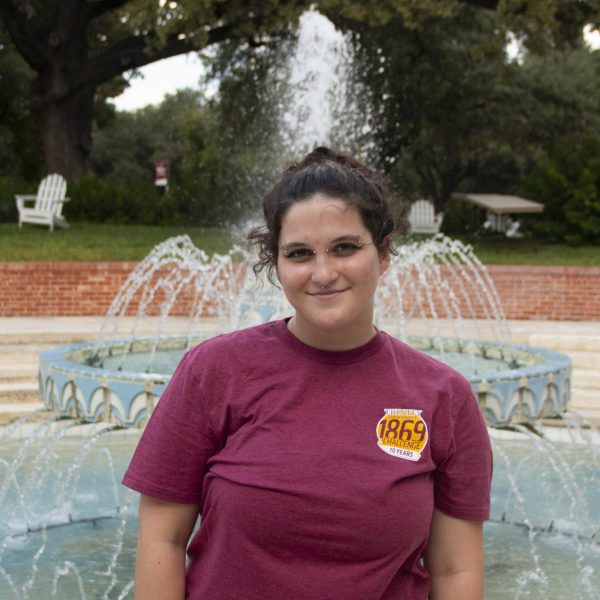Four students have reported stalking cases to Trinity University officials this academic year. None of the cases have involved strangers, according to Darin Wilde, TUPD lieutenant.
One case has been resolved via a successful no-contact order. The accuser, who agreed to speak to the Trinitonian on the condition of anonymity and will be referred to as Emma, said they faced extensive complications in resolving it.
Emma said they and their friend were stalked for months, and after an escalation of events, went to TUPD for help. TUPD issued a no-contact order to the alleged perpetrator, who was instructed to cease any further communication with Emma — but, as Emma tells it, the order was violated soon after. Though TUPD insisted they followed the correct channels, Emma said a university official told her the alleged stalker never received notice of this order.
Tony Lummus, TUPD sergeant, said this confusion resulted because this all took place over a weekend. However, he affirmed that no-contact orders issued by TUPD are valid.
“A student came and informed an officer on a weekend, right? So administration is not here … they’re gone for the weekend. And the way it was reported, we felt that we needed to issue [a no-contact order] immediately to let the other student know not to come around this student and not to be in their presence,” Lummus said.
The survivor stated that they reached out to Jessica Edonick, dean of students, and Kateeka Harris, then-interim Title IX Coordinator, next about the violation. Emma was frustrated by the situation.
“This blatant disregard for the no-contact order makes it clear that the school isn’t responding to this appropriately and there is no sense of urgency that the school wants to make me feel protected and comfortable,” Emma said. “This silence from the school has made me feel deeply, deeply concerned.”
According to Emma, Harris eventually responded after Emma sent a follow-up email a day after the no-contact order should have been put into place. In the response, sent a few hours after Emma’s follow-up, Harris told Emma that she hadn’t contacted them initially because the case did not appear to include sexual harassment or discrimination.
“With her saying that, it made me feel very not heard at all, right? When an individual with a lot of power … [says] ‘This matter does not appear under my scope,’ that’s horrible. This is harassment, and harassment/stalking is under Title IX’s scope of work,” Emma said.
According to Kateeka Harris, Title IX has a specific threshold of cases they are responsible for. If the stalking or other behavior does not meet the specific qualifications for sex ual harrasment or discrimination, it would not be a Title IX case. However, Harris mentioned that she still would reach out to students in these cases and refer students to resources available by the student conduct board. This case was never an official Title IX case.
Furthermore, Harris mentioned that TUPD issuing a no-contact order was unusual and not common practice.
“The police department does not generally issue no-contact orders because the police department would have to enforce that. How do they enforce a no-contact order between students who are supposed to be on our campus?” Harris said. “Never, in the 20 years that I have been doing this work, have I had a police department issue a no-contact order.”
Emma and their friend were able to get the no-contact order validated through Christina Castillo, who works in the Dean’s Office as assistant director of parent communication and student conduct.
Emma said Castillo reassured them that her office and TUPD were working to mitigate future experiences with the accused. Despite this, Emma expressed disappointment in Trinity’s delayed response.
“I’m not seriously damaged by it, but it’s the system failing us again, and it’s hard to be hopeful when we are in the 21st century and stuff like this is still occurring all the time. I mean, I am just one case that you are writing about when there’s many, many women who feel disheartened to talk about anything like this,” Emma said.
Lummus said that TUPD and Trinity have since worked together to implement a new system. In the future, he stated that no-contact orders will be issued by Student Affairs rather than TUPD.
In an ongoing case reported this year, the victim, who we will refer to as Alex, stated they are currently facing cyberstalking and terroristic threats by an individual outside Trinity. Both TUPD and the Title IX office are investigating the case. When Alex first reported the case and TUPD started investigating, they met with a TUPD officer who provided all relevant information.
“I had a very comprehensive conversation with him, and I basically asked him about the outcome of literally anything possible. I sat there for an hour, and he was very kind. … It actually made me feel a lot better about the situation because I felt like I had more of a grasp on what was going on,” Alex said.
Once it became a Title IX case, Alex said Harris met with them to discuss resources and accommodations available on behalf of the university. The student noted that they felt supported in the stressful, prolonged situation.
“That happened within a few days, I believe, which was really helpful. Originally I didn’t know if I was going to go see her or not, but we ended up scheduling a Zoom meeting with her and she was so nice and so helpful, seriously,” Alex said. “She guided me through this whole process of what I could get Title IX accommodations for and what Trinity could provide for me, and it has honestly been a huge game changer.”
Regarding stalking cases, Lummus said that students can go to TUPD or the Title IX office to report the incident(s). The Title IX coordinator will inform the police of the case for their crime log, but the information will not be filed in a report unless requested by the student. As for TUPD, they are federally mandated as police officers to report anything involving sexual misconduct, harassment and violence to Title IX.
Students are always able to inquire about potential outcomes without formally creating a case. TUPD encourages students to reach out with any questions they may have. Furthermore, if someone wishes to speak to a confidential resource, the chaplains, athletic trainers, Counseling Sevices and Health Services are all non-mandated reporters.
“Even if it is a Saturday morning at 1 a.m. and a student comes in to report [harassment], our dispatch office will now be calling the person on-call in the Student Affairs’ office and they will send it by email in the middle of the night,” Lummus said.







